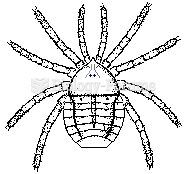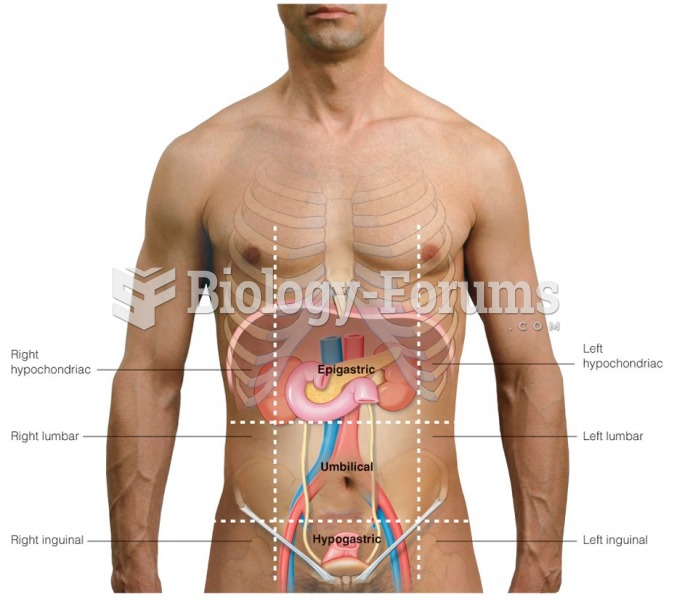|
|
|
The use of salicylates dates back 2,500 years to Hippocrates's recommendation of willow bark (from which a salicylate is derived) as an aid to the pains of childbirth. However, overdosage of salicylates can harm body fluids, electrolytes, the CNS, the GI tract, the ears, the lungs, the blood, the liver, and the kidneys and cause coma or death.
In the United States, there is a birth every 8 seconds, according to the U.S. Census Bureau's Population Clock.
In 2012, nearly 24 milliion Americans, aged 12 and older, had abused an illicit drug, according to the National Institute on Drug Abuse (NIDA).
The average human gut is home to perhaps 500 to 1,000 different species of bacteria.
The B-complex vitamins and vitamin C are not stored in the body and must be replaced each day.







